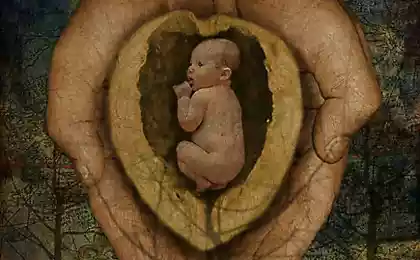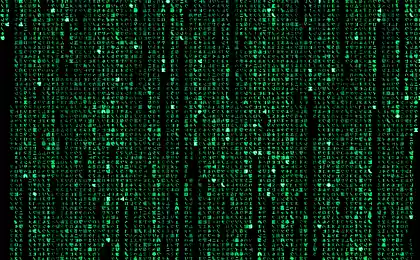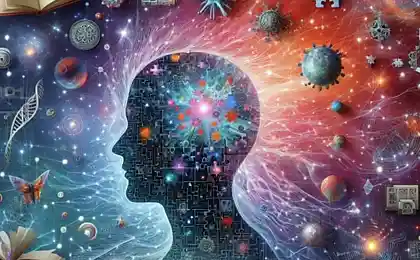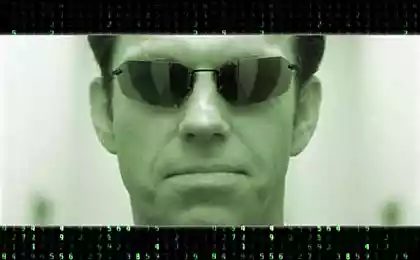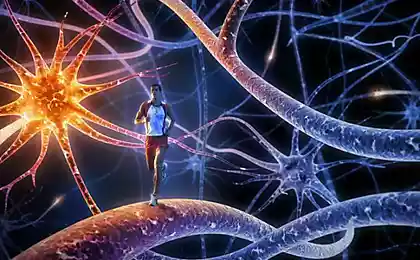Education as a transformation of the person and personal development

Hello!
In this post I'm starting a series of articles on education. I've been picking up a portal for publication, but better Habra could not find anything: many media have so bogged down in politics and trolling that their editors are forced to disable the comment. Because I believe that in the written culture of the main thing - not the content itself, and its discussions, I came just to Habr.
Warning
I must say that many of the issues that we will address rather esoteric, and confirm their research and statistics do not always succeed. Judge for yourself - is it possible to accurately measure the level of education or a successful person? If you are already in a hurry to answer "yes" - please wait for the article in which we will discuss the blurring of state standard of education brackets.
Anyway, the engineer breadth of vision and the presence of human knowledge will only benefit: not only that the profession of engineering in itself a creative, so he also has to understand not only the "how to do", but «Why do"
In any case, I will try to look for the scientific substantiation of its case and I look forward to your comments with reference to the appropriate research.
What is the "education"?
In the first article, we start with the basics. As usual, for a идем Wikipedia .
The first definition is too obvious ties to the state education and qualification. But where does the state? In which of the two hundred and fifty countries have to be? More recently, women and blacks were limited rights of access to education, and, at the national level is quite decent-looking countries. How to take this into account? In general, there are more questions than answers.
The second definition is also smacks of manipulation "to receive and the improvement of knowledge and skills, even if contrary to the truth, but specified as mandatory rules written and unwritten laws and regulations of society." It looks like education - an education of obedient robots.
Finally, the lumen can be seen in the definitions about the "appropriation of human values" and "the formation of intelligence, character, and physical abilities." These formulations, at least, free from administrative and social conventions.
And what they say on the topic of education ancient books such as the Bible, the Vedas or the Buddhist scriptures?

Education - it is self-knowledge, the knowledge of God and the desire for it, ie, development of body, mind and spirit. The Bible says: "And I will give them a heart. To know me, that I am - God. " In the Bhagavad-Gita: "Stop depend on all forms of duality, get rid of the desire to acquire or retain anything in this world and Realize your true" I "... When you, perceiving your true" I ", you will permanently remain in a spiritual trance, you will attain divine consciousness ».
Education must be practical. In the Pali Canon (one of the main Buddhist scriptures) are described in detail, even the rules of behavior in daily life situations. For example, how, what and who is to lead the conversation, "due to how a person behaves in a discussion, you can see it is suitable for conversation, or is not suitable. If you ask him, and he says, degrades the person who asked the question presses on him, and mocked him, clinging to minor errors, in this case, this person is not suitable to talk about. " If these rules are respected in our days, the debate would be much more constructive, and trolls have disappeared as a class.
Education - is a continuous process of a lifetime. The Bible: "Delving into themselves and scientists involved in this constantly; doing so will save both yourself and your hearers. " In the Gita, constantly refers to the sustainable preservation of the mind: meaning that the person is not just one knows the truth, and maintains this state, engaged in knowledge for life.
Wisdom - is responsible. In the fourth chapter of the Bhagavad Gita is described in detail, what knowledge is useful to share. In the Bible, I write about it this way: "And the Lord said to Moses: Come up to me on the mountain and be there; and I will give thee tables of stone, and the law and commandments which I have written. " In short: once you have found wisdom, your duty - to teach others the good things.
In the end, let me form a concise definition of the word "education": it is a continuous process of learning about the world, accompanied by the development of body, mind and spirit. The task of the educational environment - education of adult persons who live in harmony with itself and the world, engaged in creative and willing to take responsibility for their creations.
In the second part of this article I want to raise the question of how far from the essence of education has gone modern educational system.
Modern Education: Back to the Future

What do schools, universities and post-graduate courses for the education of adult persons? Virtually nothing, I will answer like a man who learned not in a decent school in the center of Moscow, received a degree in engineering in Baumanke, defended his PhD in economics at mat.metodam and passed a couple of dozen training courses.
More information about the classification of adult internally and externally adults can be found at Paul Luksha . On this subject also spoke known for its values of Abraham Maslow pyramid. Blockquote>
In my view, the minimum required list of properties adult personality is such:
independence; to take responsibility for themselves and their actions; the existence of non-material values and goals; ability to solve creative problems in a limited resources (project activity); systems thinking; caring for others.
Yes, today I recall the brilliant scientists, artists and eccentric politicians, who could not take care of other people, or to be irresponsible, but to make history and live an interesting life. But I will allow myself to find this statistical error. How many of these guys do you call? Chances are 20-30 people in history.
As a man busy looking for people and the creation of teams since 2007, I can say that I have all these seven years of trying to find people, first of all have an adult person. If a person is an independent, responsible, creative and system - he can learn the basics of Ruby, or Photoshop in a few weeks, and a year or two to become a specialist decent level (if he really loves his job).
The converse, unfortunately, is not working. Expert programming language that does not have at least a responsibility and autonomy, as a member of the project team to anyone not interested. A pump mental skills of a few weeks can be only in a mode of hypnosis or Lifespring. And then, at the end of backstage interviews with the organizers of such training, it became clear that the conversion to a transformation there, at best, is 1-2%. The remaining 98-99% of what came, and such care (Statistics for a few thousand people).
If you have ever engaged in recruiting - you'll see what I mean. Different companies such coveted people are called in different ways: Bodryakov pioneers enthusiasts. Glossary long, but the essence is the same - all need people who can be trusted to solve complex tasks with a high degree of uncertainty. For the rest a few years robots will be applied.
As a further confirmation of his words will give the picture below is the result of research fellow by the name of Richard St. John.
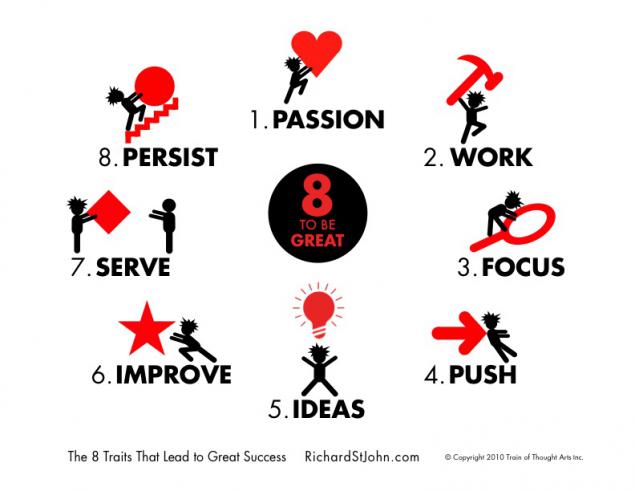
I recommend to look video conference TED .
Richard spent 10 years, more than 500 interviews with cool guys, which included, for example, Bill Gates, Martha Stewart, Sergey Brin. I think it's quite a solid sample.
So 8 qualities that are highly likely to lead to success (by Richard St. John):
passion for the beloved; zealous regular work; focus on the goals; to overcome himself; generating ideas and solving creative tasks; continuous improvement of their skills; the service of others; the stability of the resistance of the medium. < br /> Do you want his team of people with such skills? I really want to!
And what creates habits of the classical system of education? At best, the school will teach you to work hard, and the university will give a little bit of creative tasks and inculcate resistance to the aggressive environment on the example of bureaucracy. None of the school did not tell me, "Yuri, you have to do what he likes." Nowhere did not teach goal setting and time management. I'm not talking about the generation of ideas to overcome ourselves and serve others.
has recently come into the hands of an international study of the OECD on the theme of potential pupils to solve problems. Its results have tabular and в a picture . It's funny that among the tasks of defining the problem-solving skills, there is a problem about the definition of average speed of travel by bicycle for a known length of the path and the time of his passing. The real problem, really. Blockquote>
In schools Losers pull up threes on troechnikov do not pay attention, and to horoshist and honors certainly warm attitude. Estimates for next year can be predicted with a probability of about 90%. What skills improve? How to overcome? What responsibility? The university teachers very relaxed: if you want - go, do not want - do not go, kursoviki most students start preparing in May and December. Really interesting exchange projects that tore applause from all, I remember the stream just a couple.
From the beginning, the education system lays a dislike for itself and radically dangerous position: that there is cause for that kind can take, but then you can not really do. At first this attitude instilled by the example of training, and then automatically spreading to other projects.
You say "yes, we simply lazy people." But after I have passed more than 600 students and several hundred salaried employees. In my experience, most people's main problem - a lack of faith in what you love, and you can to earn money and enjoy life. People are afraid of risk, afraid to do something wrong. Scary is not even the fact that a person is afraid to surrender his real desires. The scary thing is that he was afraid to think about what is really desirable. Somehow it is not accepted, it is necessary to work and not be distracted.
The Bhagavad Gita says: "Fight in the name of the battle, and do not think about happiness and sorrow, loss and gain, victory and defeat. By doing so, you will never incur sin. " In the language of programmers that is called the "state of flux": when you are almost out of the body and converted into the code stream, without thinking about what you have to leave at 18:00 or make a new gadget. Meanwhile, in the school we are taught to perceive the external evaluation of the teacher as a measure of success. We are taught not to think about the meaning of what we do, and just do, because we need.
The result is a generation of people who are working and not doing. Work in the Russian language is not just derived from the word "slave". Those who are engaged in their work, go to the office, not because it is necessary to walk, but because it is convenient to do what he likes. That is why instead of the word "work" in relation to living beings I try to use the word "work" or "create". It is a psychological subtlety that changes the attitude to work. The work takes energy, and labor ennobles man.
And what to do?
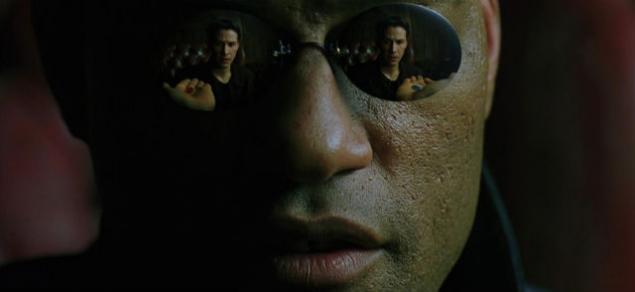
Start with yourself. Be aware of what you do want out of life for their own happiness. Form objectives, tangible and intangible. Focus on achieving them. Give the money or time to help others. If you have children or access to broadcasting to a wide audience, discuss with them these important questions, think about the value system, remove the taboo on discussion of desires and emotional outbursts.
If you yourself can not - find a mentor who will guide you through a crisis of growth. In the next article we will just talk about mentoring and transition to a new level. Then cover topics about diplomas placebo and the role of parties in the educational institutions.
Source: habrahabr.ru/post/218291/





